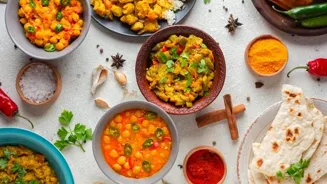Unlocking the Secrets of Indian Spices: Discover the Health Benefits Beyond Flavor. Dive into the world of spices!
From the snow-capped Himalayas to the sun-kissed beaches of Kerala, India's culinary landscape
is as diverse as its geography. But what truly binds the nation's food together is the ubiquitous use of spices.
More than just flavoring agents, these aromatic wonders boast a treasure trove of health benefits, often passed down through generations. Let's delve into the fascinating world of Indian spices and uncover their hidden potentials for well-being.
Turmeric's curcumin offers potent anti-inflammatory benefits, widely used in Indian households for health
Turmeric, that vibrant yellow powder, is a kitchen staple in almost every Indian household. Its active compound, curcumin, gets most of the spotlight, and rightfully so. Curcumin is a potent antioxidant and anti-inflammatory agent.
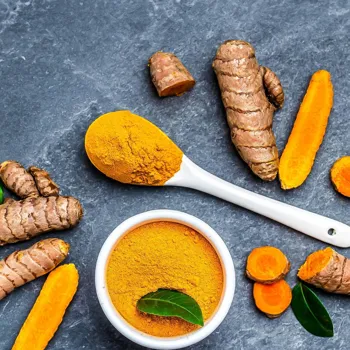
Studies suggest it could help manage conditions like arthritis, where inflammation is a major issue. Many people consume turmeric milk (haldi doodh) when they feel unwell to fight coughs, cold, and other inflammatory issues. This tradition validates the healing power of this fantastic spice.
The consumption of turmeric in daily cooking promotes wellbeing for all age groups.
Cumin aids digestion, boosts iron, and is a detox aid
Cumin, or jeera, adds an earthy warmth to dishes and is fantastic for your gut. Think of it as a natural digestive aid. Cumin stimulates the release of digestive enzymes, helping your body break down food more efficiently. It's known to relieve bloating and gas, common complaints after a heavy meal.
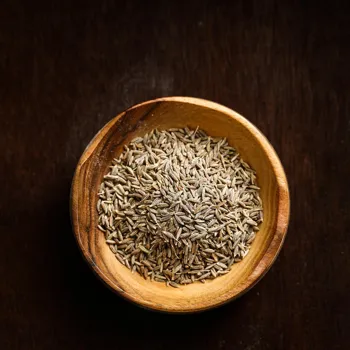
Beyond digestion, cumin is also a good source of iron, essential for healthy blood and energy levels. Roasting cumin seeds slightly before adding them to your dishes enhances their flavor and benefits. Cumin water is quite often taken as a body detox.
Ginger's versatile uses in cooking and health benefits
Ginger, or adrak, is one of the most versatile spices in the Indian pantry. Its pungent aroma and slightly spicy flavor make it a welcome addition to teas, curries, and even desserts. The star compound in ginger is gingerol, which has powerful anti-inflammatory and antioxidant properties.
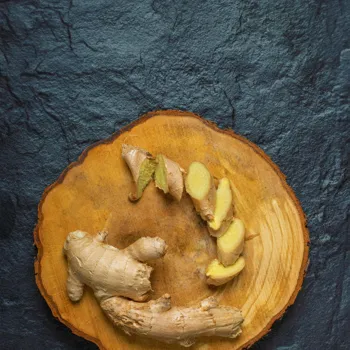
Ginger is particularly effective in relieving nausea, be it motion sickness, morning sickness, or nausea after chemo. It's also beneficial for easing muscle pain and soreness, suggesting its potential as a natural pain reliever.
Many take the benefit of this spice in everyday life to stay away from illness.
Coriander is a versatile spice with various health benefits
Coriander, or dhania, is a staple spice that is used in almost all Indian cuisines. Coriander is often used along with cumin seeds. Coriander is one of the best known spices that can bring immense of flavor and benefits too. Cilantro and coriander comes from the same plant.
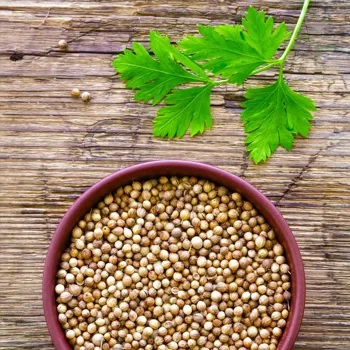
The seeds of Corainder are also used along with its leaves. Coriander leaves and seeds are known to reduce cholesterol and promote heart health. It is also known for its anti-inflammatory properties and is a good source of dietary fiber.
Cardamom: Sweet spice with health benefits in cooking
Cardamom, or elaichi, is the queen of spices. Its aromatic sweetness elevates the flavor of everything from biryanis to desserts. But cardamom isn't just about taste. This spice is known for its digestive properties, helping to soothe indigestion and bloating.
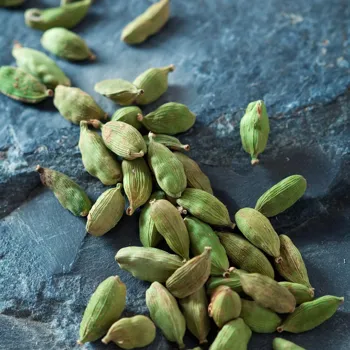
Some studies suggest it may even possess antioxidant and anti-inflammatory benefits. Chewing on a cardamom pod after a meal can freshen your breath and aid digestion. Cardamom is commonly used in teas and Indian sweets.
Chili peppers add heat and health benefits to Indian cuisine
Chili peppers, or mirchi, introduce heat to the Indian cuisine landscape and come in various forms. It adds a kick to many dishes. Chili peppers contain capsaicin, a compound known for its pain-relieving and metabolism-boosting qualities.
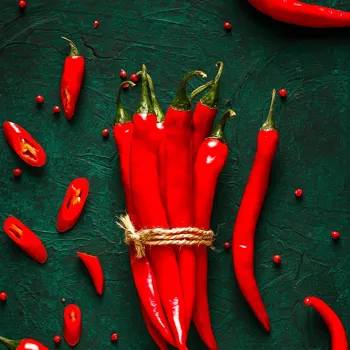
Capsaicin can stimulate the release of endorphins, which provide a sense of well-being. It's also believed to have anti-inflammatory properties. However, consumption should be moderate, as excessive amounts can cause discomfort.
Capsaicin creates a warming sensation and helps with blood circulation.
Embrace the power of Indian spices for a flavorful journey
In conclusion, the next time you savor an Indian dish, remember that the spices you're enjoying are more than just flavor enhancers. They are a testament to India's rich culinary heritage. So, embrace the power of Indian spices and embark on a flavorful journey towards a healthier and happier you!
